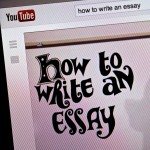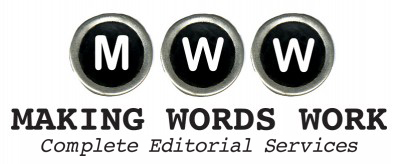 I caught up with my neighbor the other day, hearing about the online classes she was taking for a graduate degree in nutrition. We chatted about the pros and cons of going to school online – more flexibility and independence, less connection with professors and peers. Then my neighbor recounted a recent conversation with her teenage son. He wanted to know why she was bothering to get a degree at all.
I caught up with my neighbor the other day, hearing about the online classes she was taking for a graduate degree in nutrition. We chatted about the pros and cons of going to school online – more flexibility and independence, less connection with professors and peers. Then my neighbor recounted a recent conversation with her teenage son. He wanted to know why she was bothering to get a degree at all.
“Why don’t you just go to YouTube to find out you want to know?” he asked. “That’s what everyone does these days.”
He’s probably right – to a point. I would be hard-pressed to think of any subject that wasn’t covered in some way by an online video or other tutorial. But what about editing? Writing? Can you learn those skills from a YouTube video? I logged on to find out.
A search for “How to edit an article” pulled up video clips offering tips for accessing or editing text in Wikipedia, Joomla, eZ Publish and the like. “How to edit an essay” brought up, among other things, a four-minute animated video from Education-Portal.com offering tips for peer-editing a paper, including understanding the author’s intent and making sure the essay flows “in a way that makes sense and is consistent with the overall theme and thesis of the piece.” Sound advice – if you know anything about themes and theses, that is.
How about writing? Yep, that’s covered, too. You can watch a video that uses a dating analogy (it’s important to have a good introduction or “pick up” line) or one with an academic approach that discusses the need for a clear thesis, balanced supporting evidence, and a power-packed conclusion, all achievable by starting with a detailed – but not too detailed – outline.
Seems my neighbor’s son is right: You can learn just about anything by searching for it online. But before I put the cap on my editing pen for good –or suggest that my friend bail on her degree program – I remembered Donna Underwood. Donna, as we were allowed to address her, was my A.P. English teacher during my senior year in high school. She was smart, funny, witty, kind, and frank. She wore little round glasses high-top sneakers. She loved to share her “wids of wordsdom” about writing, literature, film, and life itself. Donna also was a huge fan of James Dean, and had a life-sized poster of him in the classroom.
I always credit Donna for teaching me how to think analytically. She encouraged all of her students to write clearly and actively, to find a thesis and prove it, and to answer the critical question, “So what?” It was hard work, and we worked as hard as we could. Nothing was sweeter than a glowing comment on a paper Donna had just marked.
Like James Dean, Donna Underwood died young. A hereditary form of stomach cancer took her life, but not before my classmates and I strutted our stuff at her bedside in all our prom finery. And not before we could share with her our A.P. exam results: Top scores for all. Thanks, Donna.
Today, decades later, whether I’m helping my kids with a writing assignment or working on website copy for a client, I keep Donna Underwood’s gentle but firm voice in mind: Do these words make sense? Is the point being made in most succinct and engaging way possible? Is there just a touch of poetry somewhere in the lines? And most important of all, has the question, “So what?” been answered?
If I can say “yes” to these questions, I’ve done my job. For that, I’d like to thank Donna Underwood and her precious, priceless wids of wordsdom – and challenge anyone to find such a teacher on YouTube.

